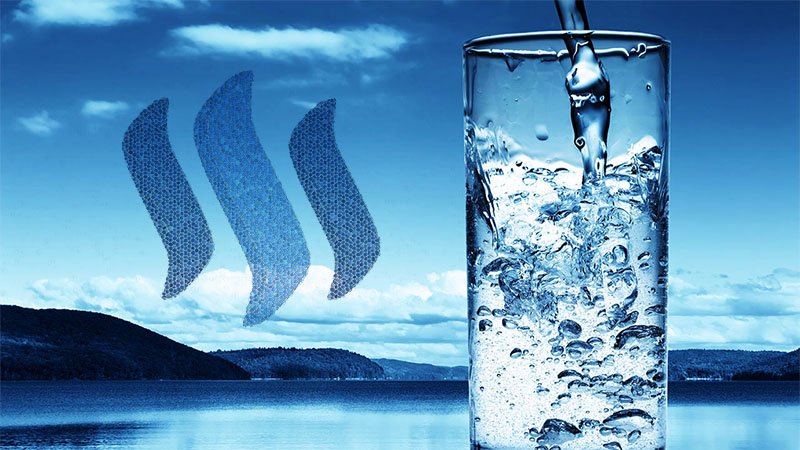
Water is the source of life.
It's essential to ALL life on earth - humans, plants and animals all depend on it!
Enough clean, drinking water is a key factor to mental and physical well being.
Many people actually underestimate the importance of water for our health, and have no idea how much proper hydration could improve their life!
We humans actually consist to 60-65% of WATER! (And Babies even 75%, which drops within their first year of life).
Our important vital Organs are also mostly made up of water - our lungs consist of 83% water, while our heart and brain consists of 75% water!
But why exactly is water important for our health, how much do we need, and what would happen if you stopped drinking water?
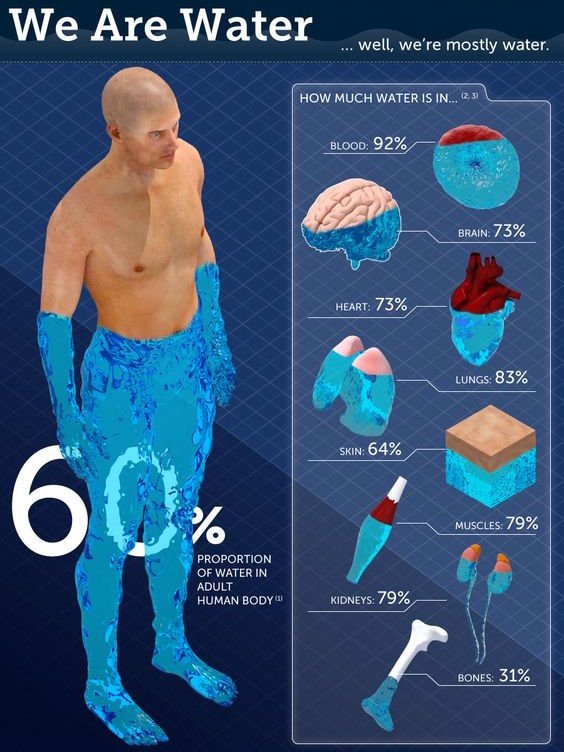
What does water do in our bodies?
Water is a very important component of many tasks that our body executes regularly.
Firstly, it carries nutrients across the body, and is of course contained in our blood as well.
Water also lubricates our mucous membranes like the eyes, mouth and nasal area,
It also helps regulate our body temperature, helps to bolster joints, moisturizes our skin and keeps it flexible, and is extremely portant to our brain's health and functionality.
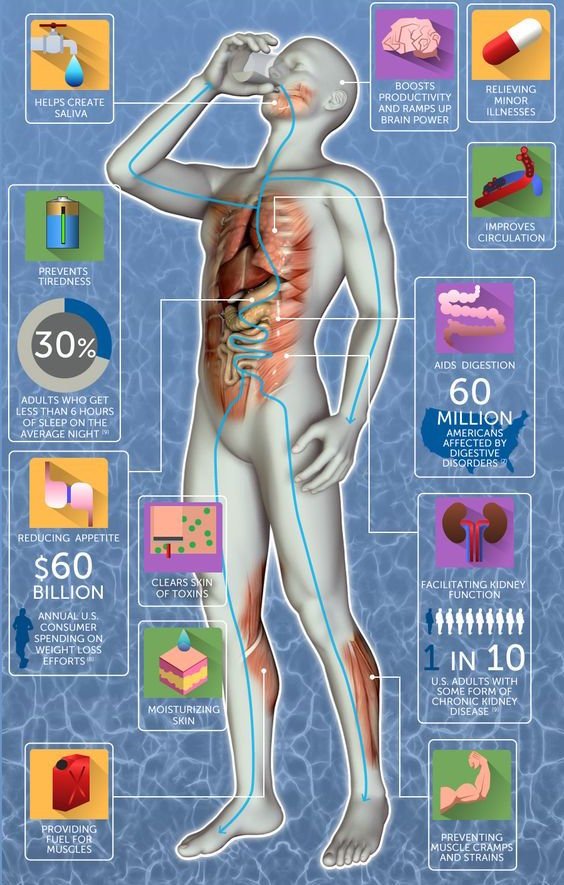
How much do we actually need to drink?
Drinking enough water is probably one of the most hyped health-related topics ever.
I've also written a post about it previously, explaining the health benefits of staying hydrated.
Adults lose about 2-3 liters of water daily - due to bowel movements, sweating, and even breathing.
So it's obvious that we need to drink a lot in order to compensate for that loss - but there's quite a lot of answers to the question how much we actually need to drink.
You might have heard of the "8 glasses of water a day" rule, but that's been debunked.
The truth is that the amount of water each person needs depends on a lot of different, personal factors - for example weight, gender, environment, and level of physical activity.
The recommended daily amount varies between 2 and 3.7 liters.
Of course, liquids are also taken in through certain foods - fruits and vegetables are mostly made up of water, so they can add to your daily water intake as well.
A general rule is to divide your body weight by 2, and then divide it again by 8. The result will be how many cups you should drink per day (But this doesn't calculate gender, activity and environment factors, so the result still isn't totally accurate!)
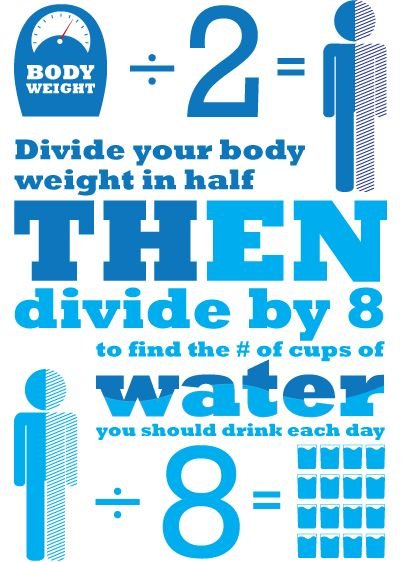
What happens when we don't drink enough?
Our thirst is controlled by our hypothalamus.
Your body has certain sensors in the blood vessels that check the concentration of sodium and other components of your blood constantly.
If you are not hydrated enough, your blood pressure and overall blood volume is being lowered, and the brain sends out the signal to drink.
At the same time, the antidiuretic hormone gets released by hypothalamus.
As soon as that reaches your kidneys, it activates a certain mechanism which makes the blood absorb and preserve more water (the channels that make this posible are called Aquaporins).
This is the reason why dehydration makes your urine darker - because it's more concentrated!
When you don't drink enough water, symptoms include having a dry mouth (obviously), less energy, decreased mood, less skin moisture which leads to skin irritations, and after a while you will notice signs of your brain slowing down.
Water is especially important for your brain - as mentioned above, your brain actually is 75% water!
So when you're dehydrated, it's no surprise that your brain actually shrinks in size, and it's much harder for your bain to keep up with its tasks and perform at its usual speed.
Studies with groups pf subjects that were either fully hydrated or dehydrated have shown that executing the same tasks 'costs' the dehydrated brains a lot more brain power and oxygen.
You may also get a headache, feel light-headed, and the response time (and overall speed with which your brain processes information) drops.
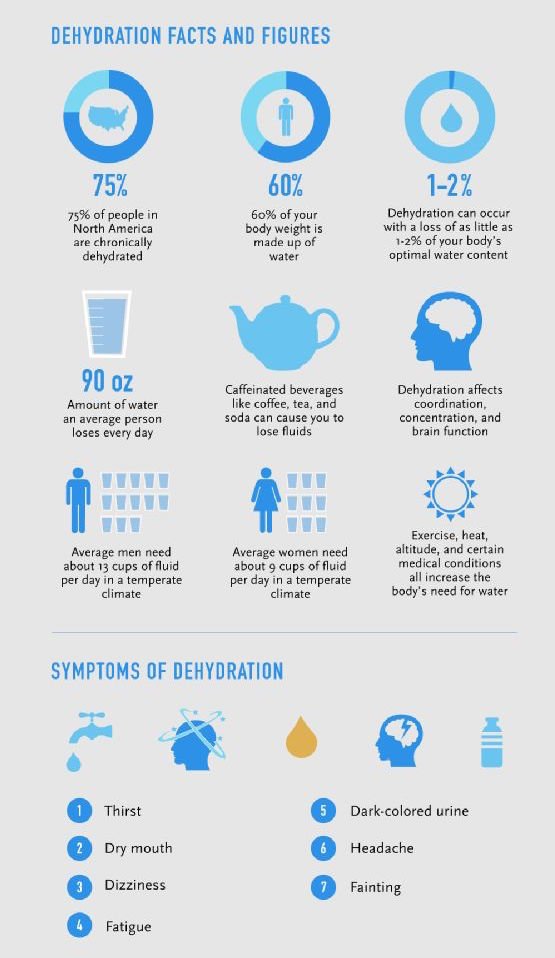
And what if you stopped drinking at all ?
Water is actually more important to your body than food.
While you can survive without food for over a month (depending on the conditions) it would only take a few days until you died from the results of dehydradtion.
After the first 1-2 days without drinking water, you couldn't pee at all anymore - there would simply be no fluid left for your brain to produce urin.
The same goes for your saliva, it would become harder and harder to swallow anything, your mouth would dry up.
But the worst effects would still happen to your brain: people who don't drink for several days get so dehydrated that they suffer the most from an extremely decreased brain function and get very delirious.
After 3-5 days without water, your body ultimately starts to shut down its organs - and the brain as well, so you would die.
I know that sometimes, it can be hard to drink enough water throughout a busy day.
But as you can see, water is an extremely important component to our body's health, and especially to our brain!
Try drinking 2-3 liters of water a day for a few weeks, and let the results speak for themselves!
Images: Logo, 1, 2, 3, 4, 5, Sources: 1, 2, 3, 4

© Sirwinchester
